Search Our Whole site:
Just Search: Kenya
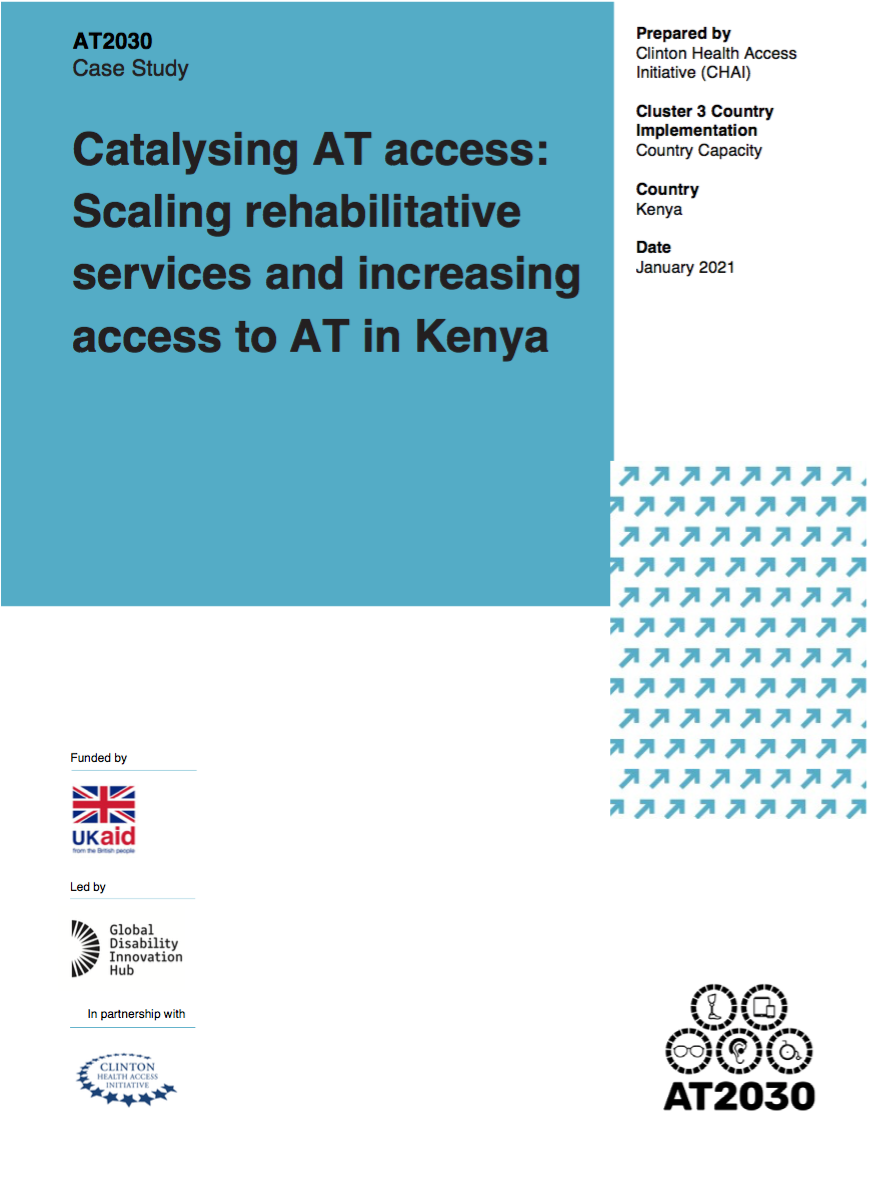
Catalysing AT access: Scaling rehabilitative services and increasing access to AT in Kenya
It is estimated that about 100,000 people need a wheelchair in Kenya annually. Across the 47 counties in Kenya, anecdotal evidence showed that health centres and access points for rehabilitative services are not evenly distributed, appropriately staffed, and sufficiently equipped. The situational analysis showed that Kenya’s access challenges are driven by a policy gap, limited service points with few trained personnel, fragmented delivery landscape, no national specifications, standards or supply chain and limited financing of rehabilitative services and wheelchairs.
![A man in a cap and glasses smiles while holding a document. Text on the image promotes the “Disability Inclusive Futures [webinar],” exploring OPD ecosystems and capacity in Kenya and Pakistan. Cover Image](/static/website_creator/img/2025_LG_2.png)
Disability Inclusive Futures [webinar]: Exploring OPD ecosystems and capacity in Kenya and Pakistan
As part of the Global Disability Innovation Hub’s UK International Development funded AT2030 programme, a regional initiative has been rolled out to deepen understanding of OPD needs and priorities in Kenya and Pakistan. In Kenya, this work was delivered in partnership with the Kilimanjaro Blind Trust Africa (KBTA), and in Pakistan, by the Special Talent Exchange Program (STEP). The project included a needs assessment to understand the real-world challenges OPDs face, and capacity building to meet these identified needs.
Exploring OPD systems and capacity in Kenya and Pakistan webinar.
In this webinar we heard from Organisations for Persons with Disabilities in Kenya and Pakistan who were part of the Global Disability Innovation Hub’s UK International Development funded #AT2030programme , a regional initiative has been rolled out to deepen understanding of Organisations of Persons with disabilities (OPD) needs and priorities in Kenya and Pakistan
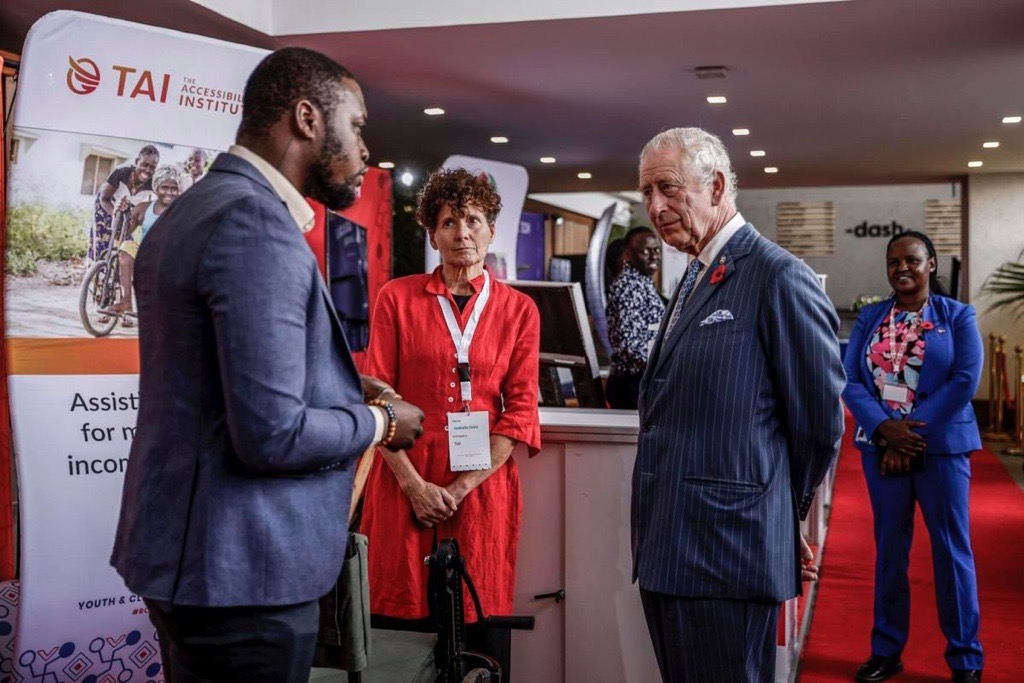
His Majesty the King concludes visit to Kenya with encouragement for Assistive Technology innovators, and meets ventures from our Innovate Now accelerator
His Majesty King Charles III recently concluded his visit to Kenya, where he met ventures from the Global Disability Innovation Hub’s Innovate Now Accelerator, Africa's first Assistive Technology Accelerator. The King's visit served as a significant boost for the Kenyan assistive technology sector, highlighting the country's leadership in developing affordable solutions for people with disabilities.
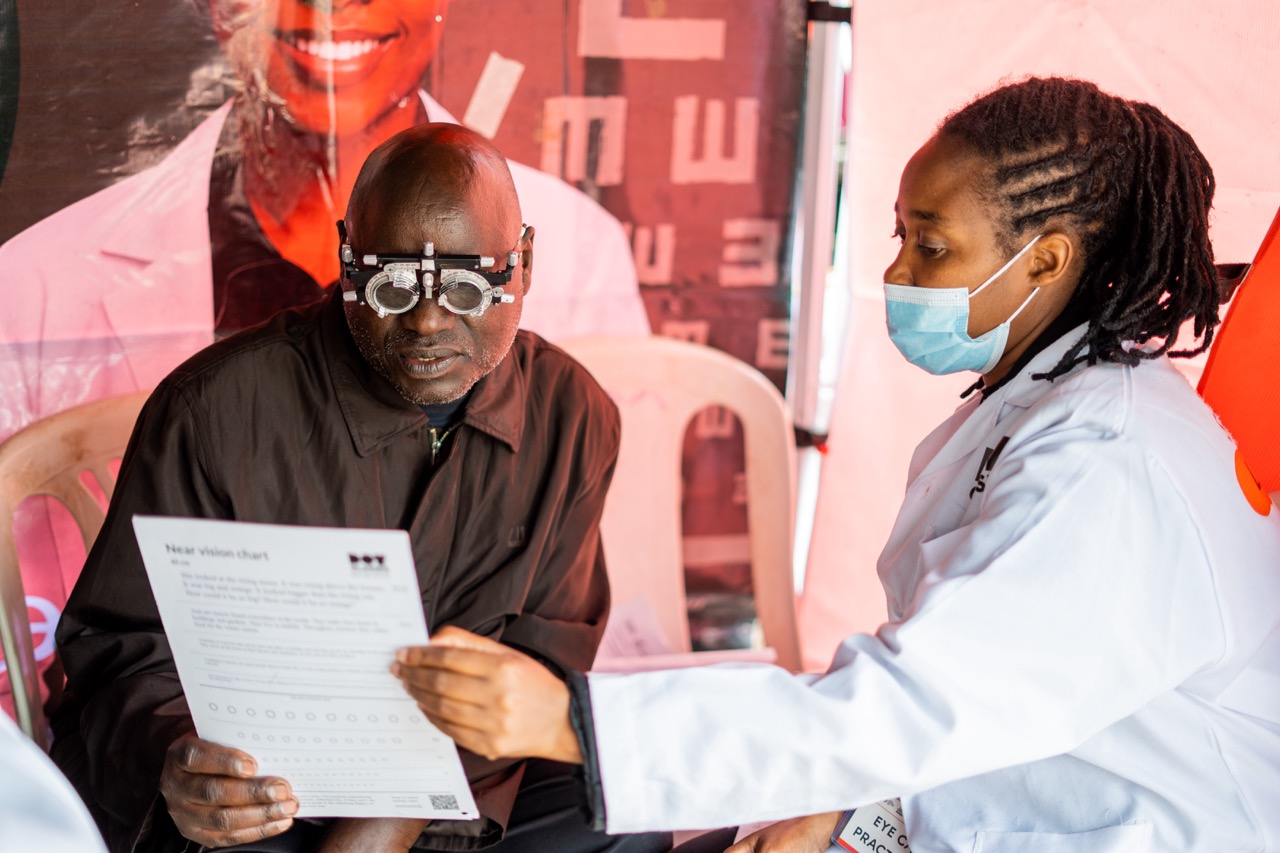
New Study Aims to Transform Eye Care Accessibility in Kenya and Beyond.
A new research study is underway to evaluate an innovative, low-cost eyeglass distribution model that could significantly expand access to vision care in underserved communities across Kenya and beyond. This study conducted in collaboration with Dot Glasses is part of the UK International Development-funded #AT2030Programme, delivered in partnership with Senses Hub. It aims to generate critical academic evidence to support the long-term scalability and sustainability of the Dot Glasses model.
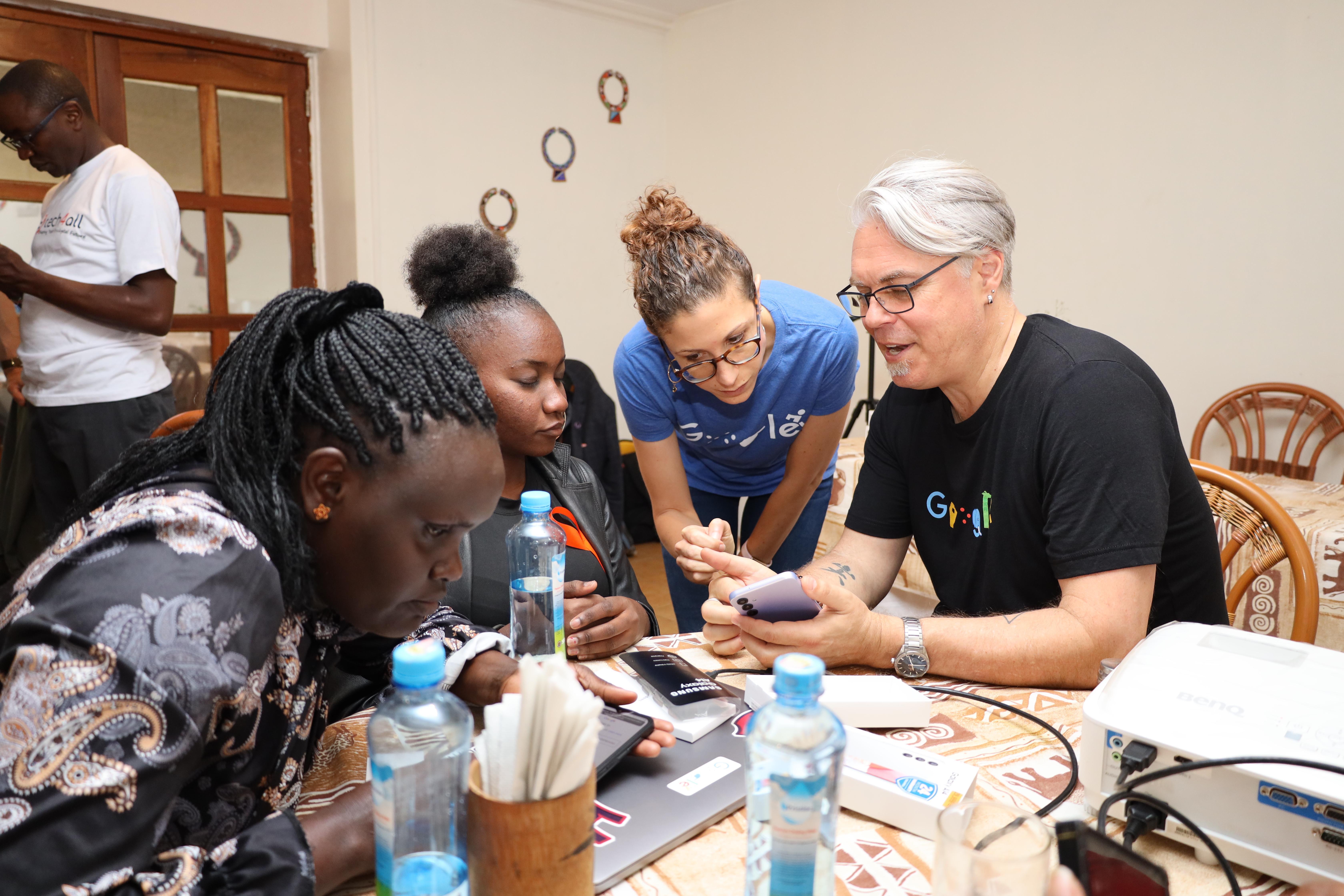
Google project to assist sight and hearing in India, Brazil, and Kenya
Mobile as Assistive Technology: How Digital Assistive Technology is Transforming Lives GDI Hub, Google and AT Scale launch pioneering project to test ‘Mobile at Assistive Tech’ in Kenya, Brazil and India.
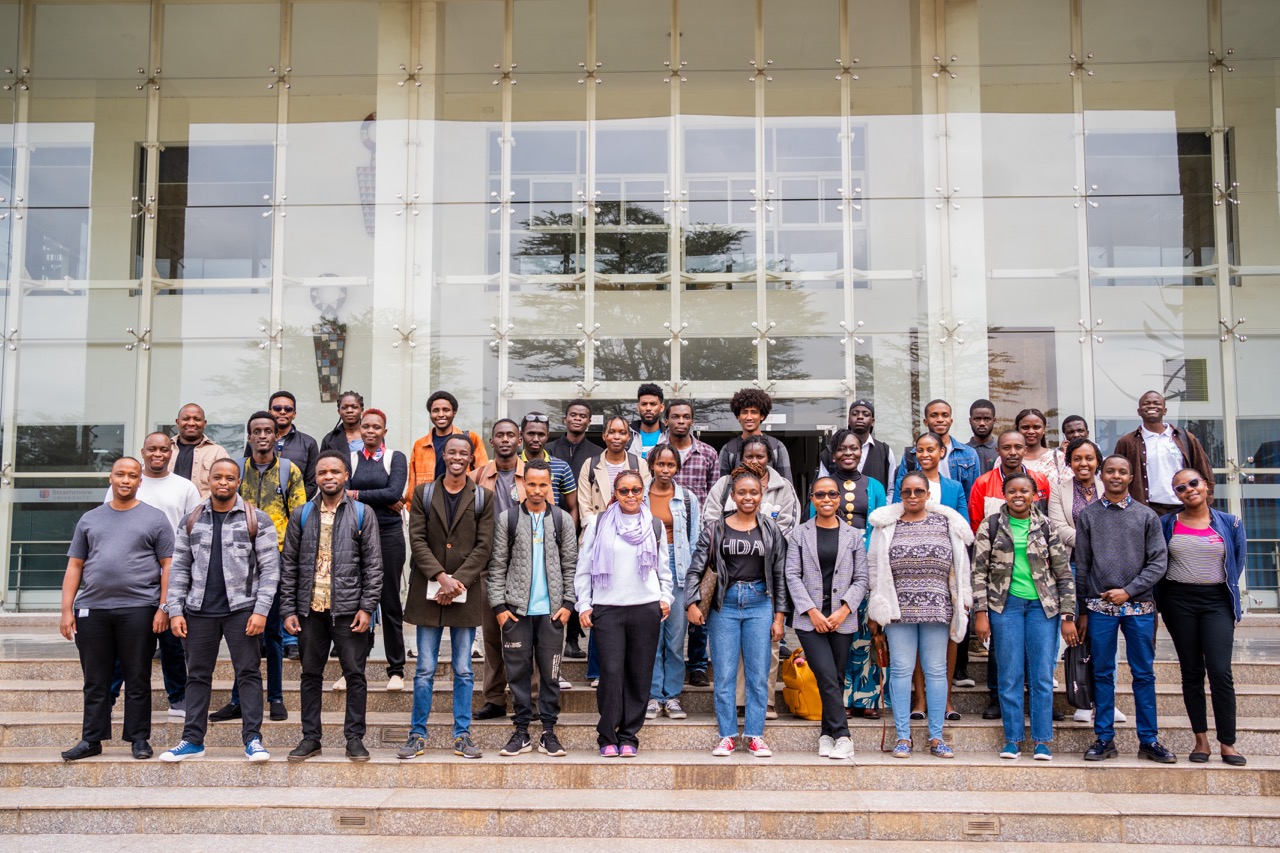
Inclusive ASR Innovation Sprint to Empower People with Non-Typical Speech in Kenya.
The second phase of the Centre for Digital and Language Inclusion (CDLI) initiative is now underway in Kenya, driving the development of inclusive Automatic Speech Recognition (ASR) systems for people with non-typical or slurred speech, particularly in African languages. This marks the second innovation sprint in a pan-African effort to close the digital divide for individuals with speech impairments, building on a successful pilot in Ghana.
OPD Country Level Strategy for Kenya
The primary aim of this project is to develop an OPD Country Level Strategy for Kenya, titled: ‘How can technology support OPDs to build capacity, impact and influence’ - through a lens of Assistive Technologies which will include an OPD Capacity Building Framework co-created by OPDs.
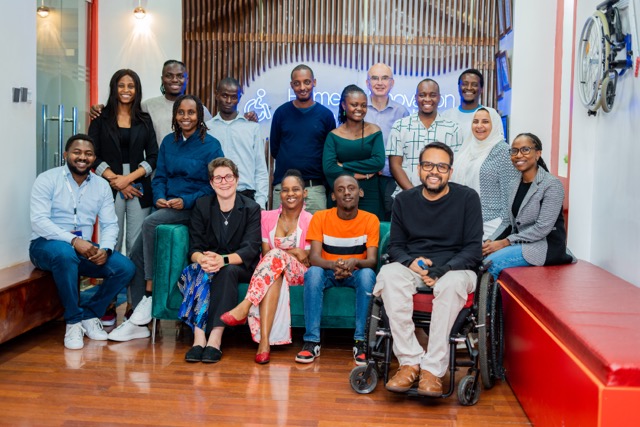
Building Inclusive Speech Recognition for All in Kenya
The GDI Hub’s Centre for Digital Language Inclusion (CDLI) is working to change that. Through its Automatic Speech Recognition (ASR) project in Kenya, CDLI is developing speech recognition models tailored for people living with diverse speech patterns, including those with impaired speech. The goal is simple yet transformative: to ensure that voice technology is available and inclusive for everyone not just those whose speech fits conventional models.
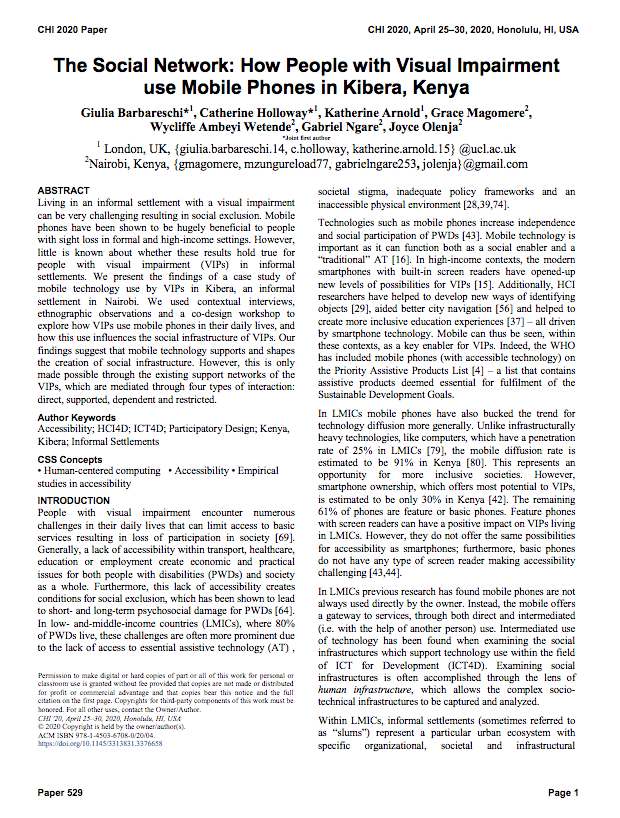
The Social Network: How People with Visual Impairment use Mobile Phones in Kibera, Kenya
This paper on how social interactions mediate the use of mobile phones by visually impaired people in Kibera, Kenya was accepted to the CHI2020 Conference, a global event on Human-Computer Interaction.
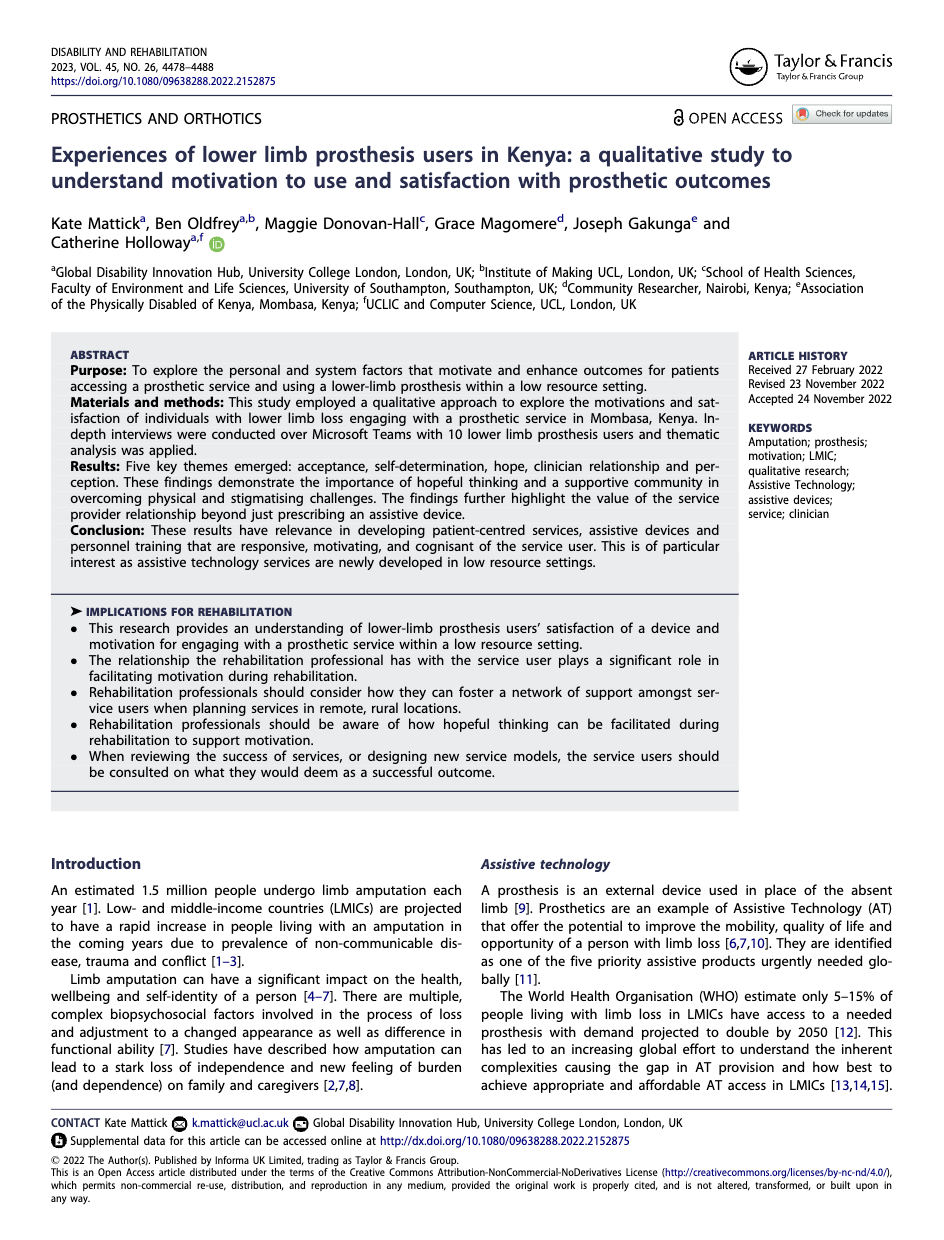
Experiences of lower limb prosthesis users in Kenya: a qualitative study to understand motivation to use and satisfaction with prosthetic outcomes
This paper explores the personal and system factors that motivate and enhance outcomes for patients accessing a prosthetic service and using a lower-limb prosthesis within a low resource setting. This study employed a qualitative approach to explore the motivations and satisfaction of individuals with lower limb loss engaging with a prosthetic service in Mombasa, Kenya. In-depth interviews were conducted over Microsoft Teams with 10 lower limb prosthesis users and thematic analysis was applied. Five key themes emerged: acceptance, self-determination, hope, clinician relationship and perception. These findings demonstrate the importance of hopeful thinking and a supportive community in overcoming physical and stigmatising challenges. The findings further highlight the value of the service provider relationship beyond just prescribing an assistive device.
ASR Kenya
The Centre for Digital and Language Inclusion (CDLI) has finalised the second phase of its groundbreaking initiative to develop inclusive Automatic Speech Recognition (ASR) systems for individuals with non-standard or impaired speech in African languages. This effort aims to close the digital divide for people with speech impairments and marks a major milestone following a successful pilot in Ghana.
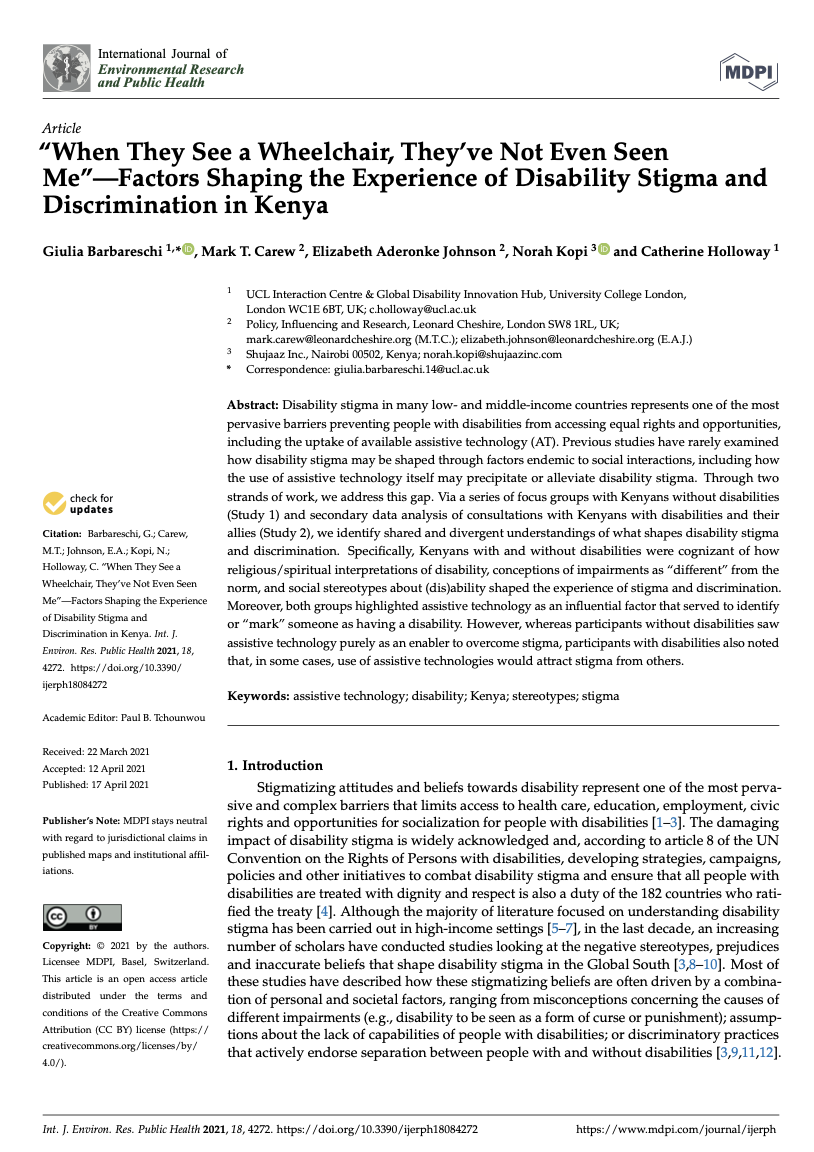
“When They See a Wheelchair, They’ve Not Even Seen Me”—Factors Shaping the Experience of Disability Stigma and Discrimination in Kenya
This paper addresses the gap in research on the factors that shape the experience of disability stigma including social interactions and AT use in Kenya. Via a series of focus groups with Kenyans without disabilities (Study 1) and secondary data analysis of consultations with Kenyans with disabilities and their allies (Study 2), we identify shared and divergent understandings of what shapes disability stigma and discrimination and highlight assistive technology as an influential factor that served to identify or “mark” someone as having a disability.
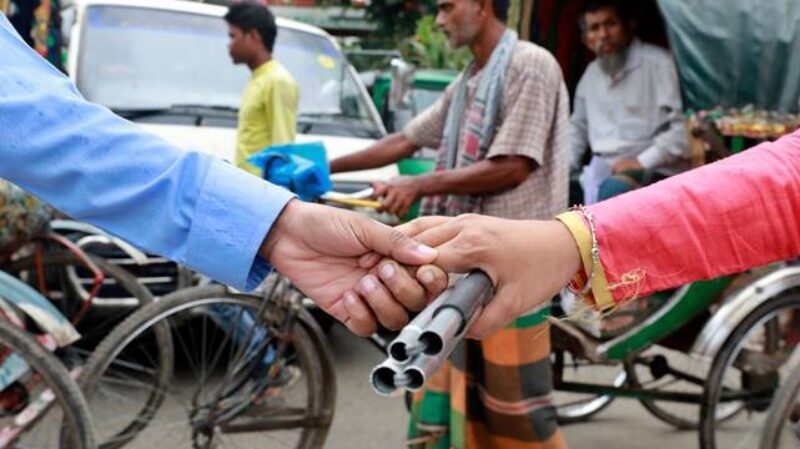
Exploring the experience of persons with disabilities of using mobile technology in their daily lives in Kenya and Bangladesh
Although, mobile phones are universally used for communication, for persons with disabilities they become essential assistive technologies that bridge barriers to opportunities which are not accessible otherwise.
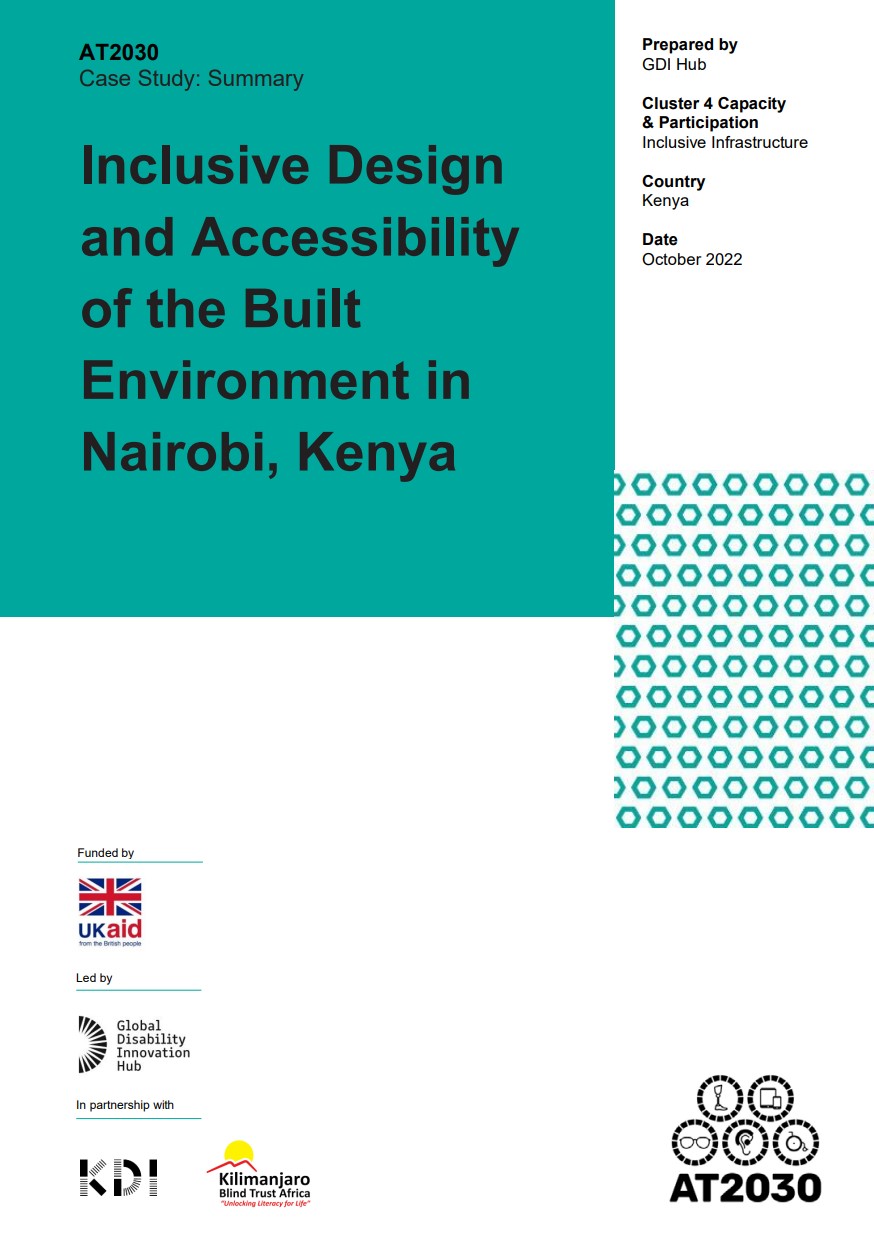
Inclusive Infrastructure Case Study Nairobi, Kenya
Nairobi is experiencing rapid growth and investment in infrastructure which offers great potential to embed inclusion. The city has complex urban development challenges with roads and transportation commonly cited as major challenges. This case study explore the current state of the infrastructure provision - and makes recommendations for opportunities to imbed accessibility and inclusion.
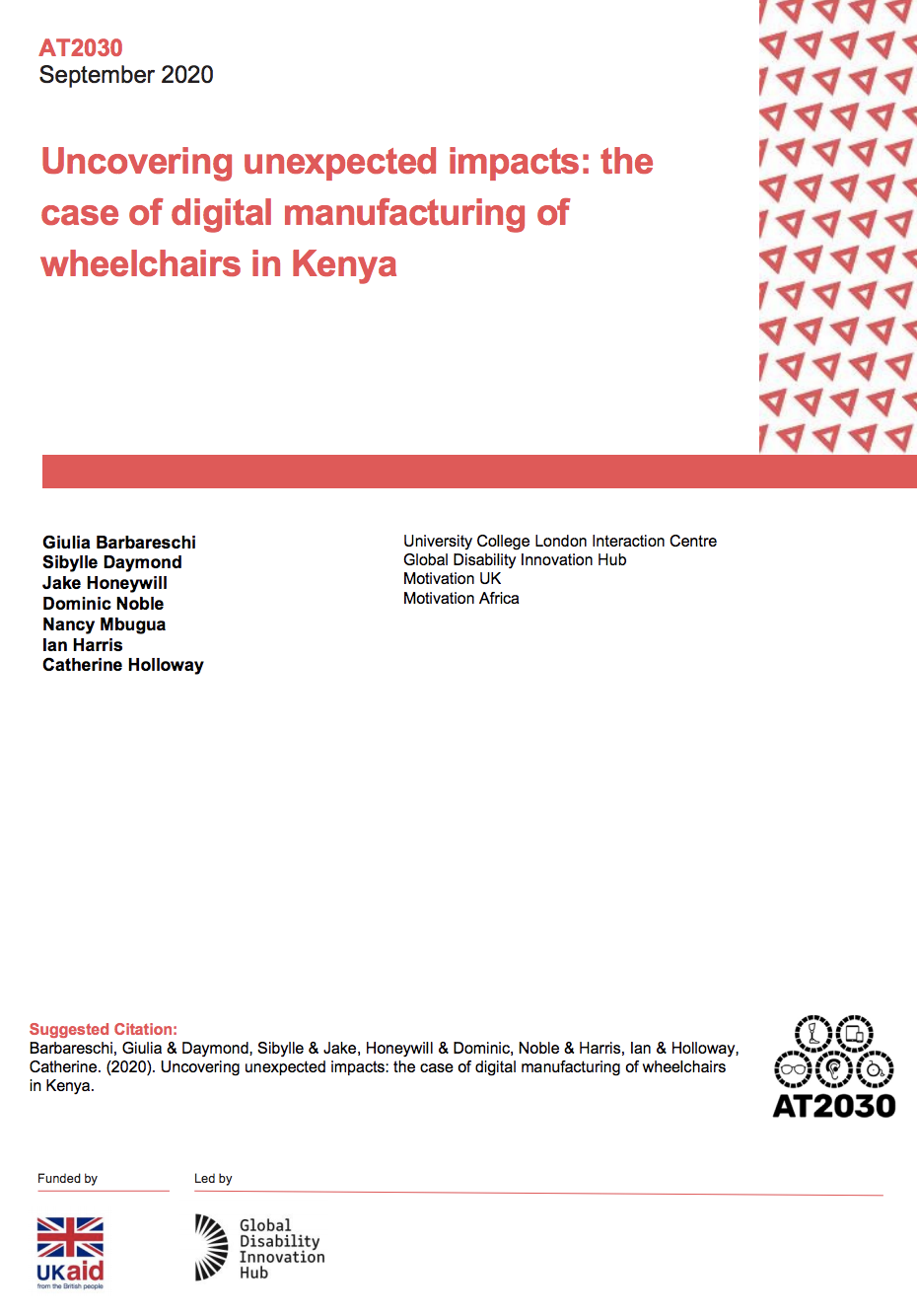
Uncovering unexpected impacts: the case of digital manufacturing of wheelchairs in Kenya
To address issues around the provision of appropriate wheelchairs in low-and-middle income countries Motivation developed a new method for producing customized wheelchairs leveraging technologies such as Computer Aided Design and 3D printing. This article was part of the RESNA 2020 Virtual Conference, GAATO/RESNA Assistive Technology Outcomes/Impact Summit.
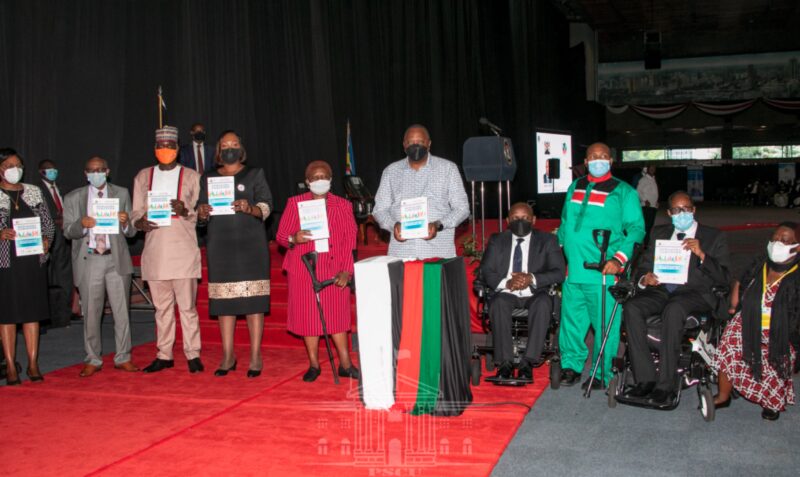
International Day of Persons with Disabilities in Kenya
The President also launched the new Digital Registration System developed by the National Council for Persons With Disabilities this year, aimed at addressing data gaps and curbing cases of fraud. The system will also offer a new generation disability identification card with security features to prevent potential fraud and ensure the right people get registered.
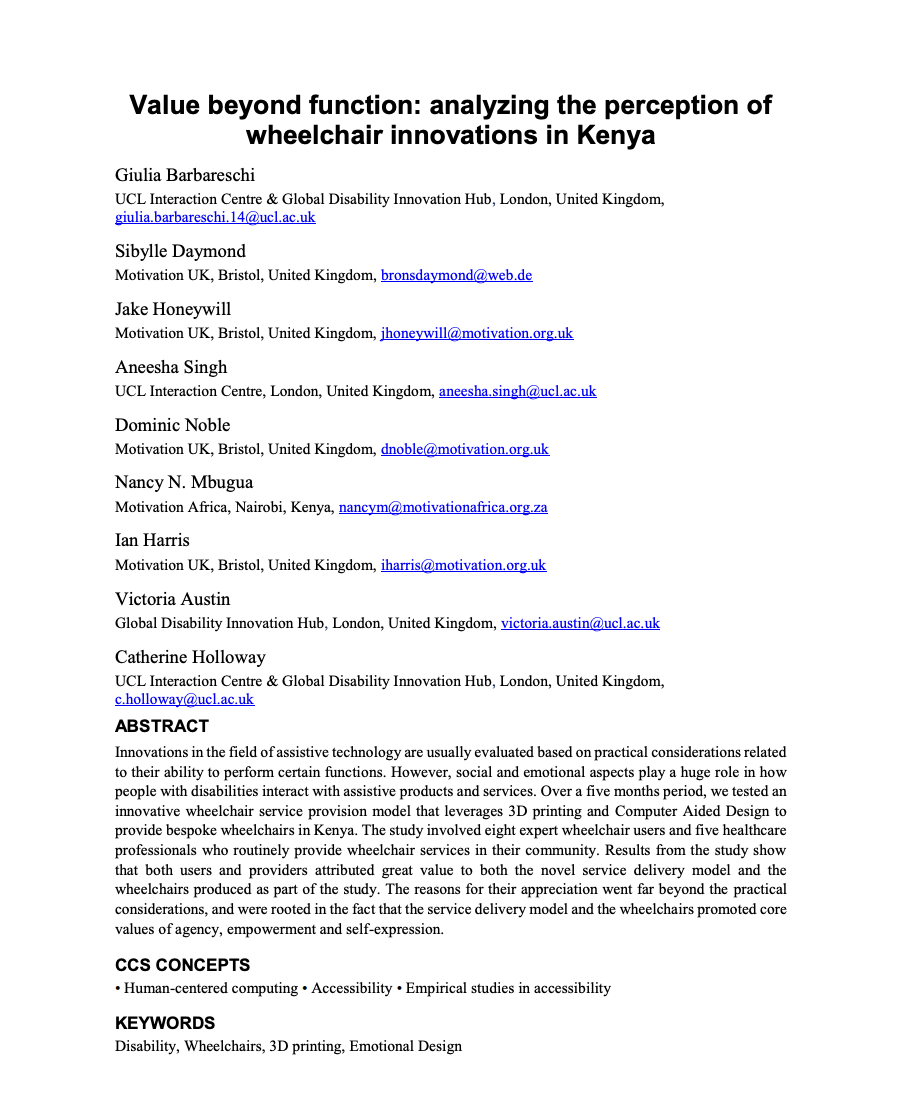
Value beyond function: analyzing the perception of wheelchair innovations in Kenya
Innovations in the field of assistive technology are usually evaluated based on practical considerations related to their ability to perform certain functions. The study involved eight expert wheelchair users and five healthcare professionals who routinely provide wheelchair services in their community.
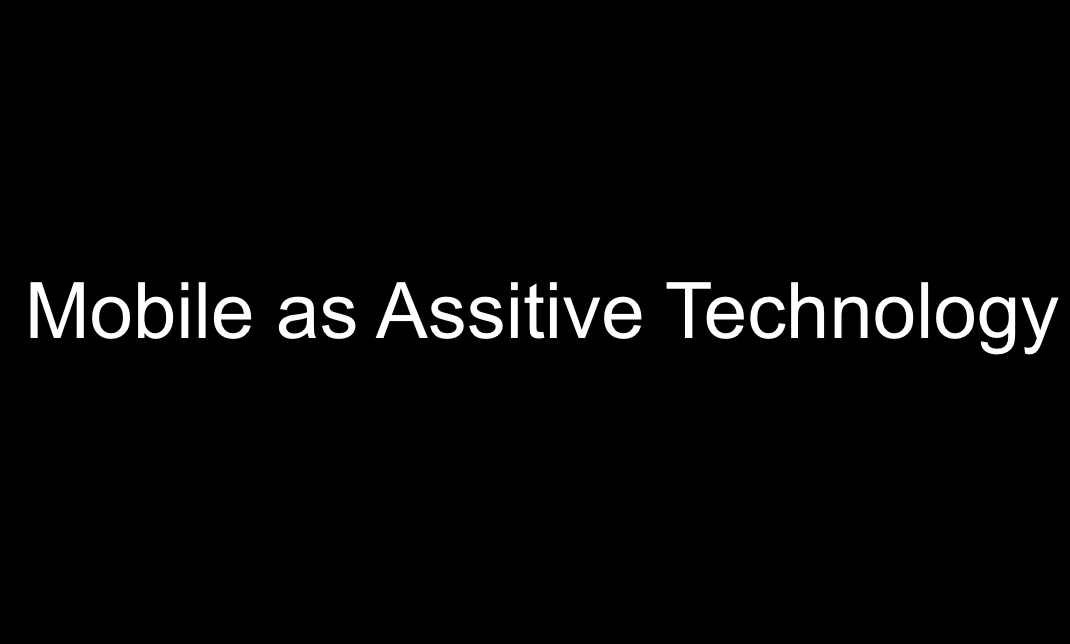
Mobile as AT Kenya
This project measures how mobile phones act as an assistive technology and how the technology alongside training can transform lives.
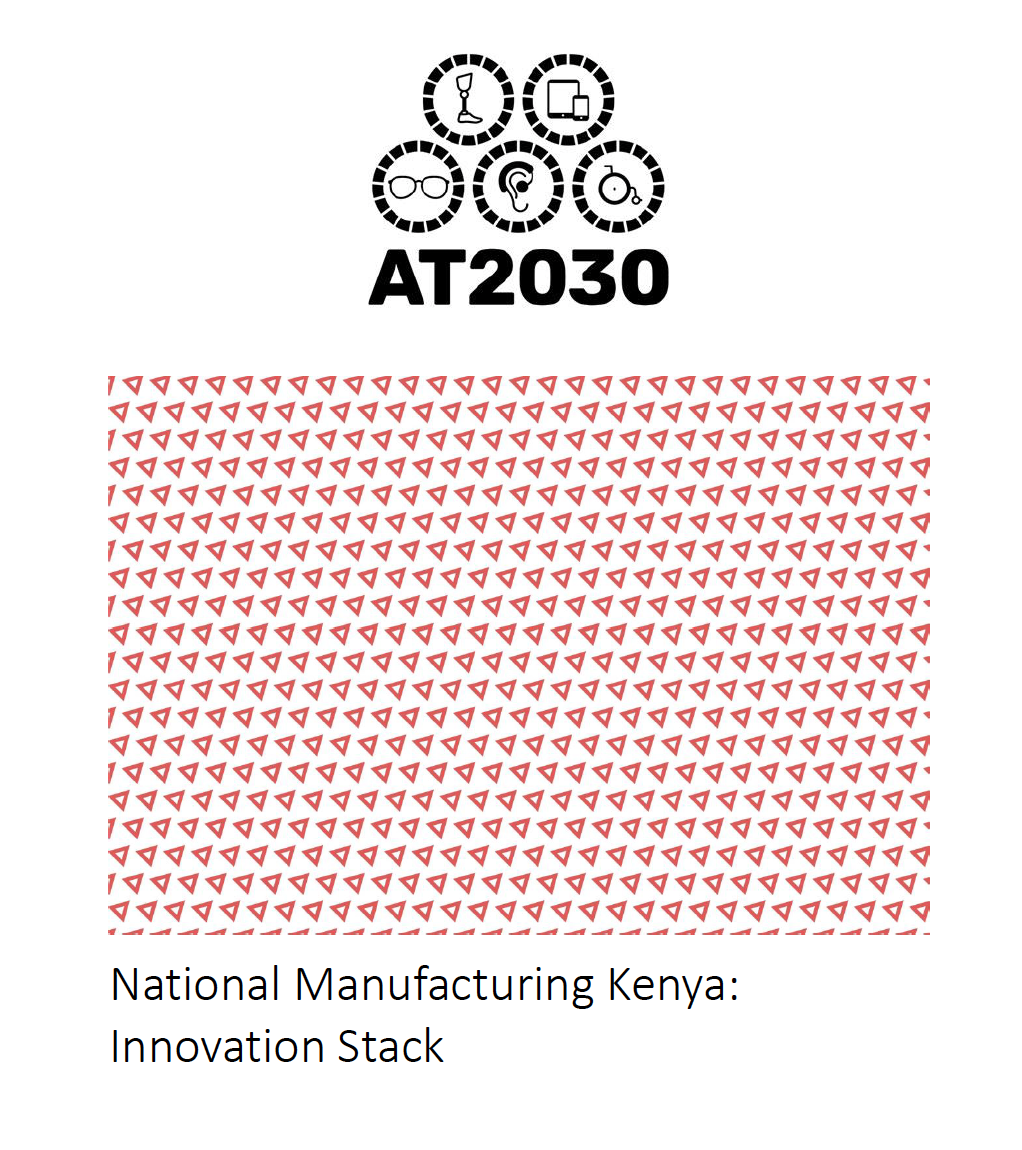
National Manufacturing Kenya: Innovation Stack
This paper provides an overview of a model of local manufacture of wheelchairs by Motivation. Motivation is a disability inclusion charity and social enterprise, operational for 31 years. Their development of a Kenyan wheelchair manufacturing model will help to indicate whether national manufacture can provide one method of overcoming global supply challenges, inherent in a mass-market model, and aligns with the Kenyan Government's plans to boost the manufacturing sector and improve the provision of assistive technology, and the Government’s desire to be a regional provider.
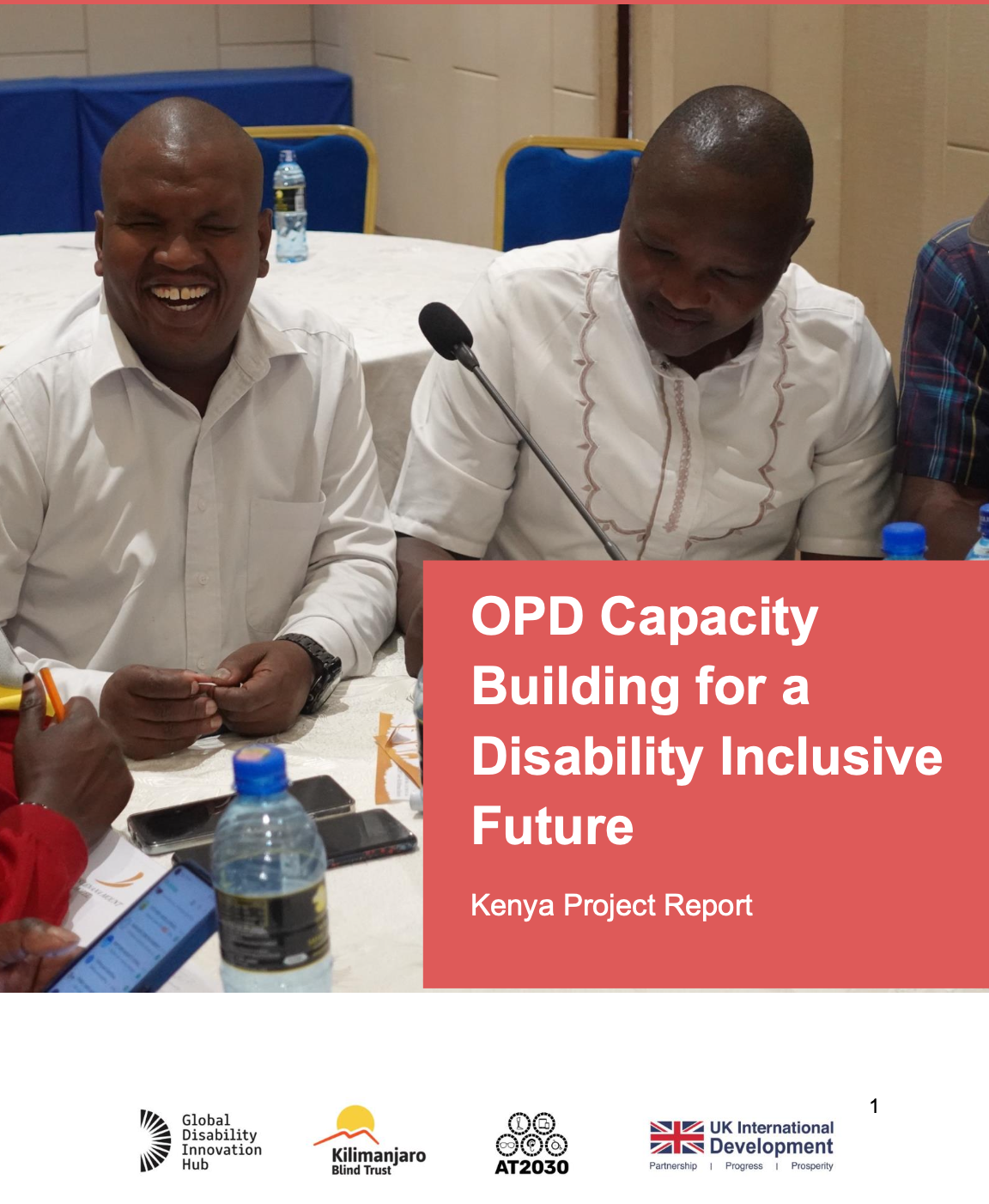
OPD Capacity Building for a Disability Inclusive Future Kenya Project Report
Kilimanjaro Blind Trust Africa (KBTA), in partnership with the Global Disability Innovation (GDI) Hub as part of the AT2030 programme, funded by UK International Development, implemented a project to strengthen the capacity of Organisations of Persons with Disabilities (OPDs) to enhance their advocacy, organisational effectiveness, digital literacy, and skills in assistive technologies (AT). To support this initiative, Kilimanjaro Blind Trust Africa (KBTA), led by Global Disability Innovation Hub, carried out a comprehensive needs assessment in three counties —Nairobi, Mombasa, and Kisumu — to identify the challenges OPDs face in these regions. The needs assessment gathered actionable insights that informed the development of targeted capacity-building interventions for OPDs.

Empowering OPDs to Lead Change
As part of the Global Disability Innovation Hub’s UK aid-funded AT2030 programme, a regional initiative has been rolled out to deepen understanding of OPD needs and priorities in Kenya and Pakistan. In Kenya, this work is led by Kilimanjaro Blind Trust Africa (KBTA), and in Pakistan, by the Special Talent Exchange Program (STEP). These efforts fall under the “Include” cluster of AT2030, focusing on leadership and engagement to drive systemic change.
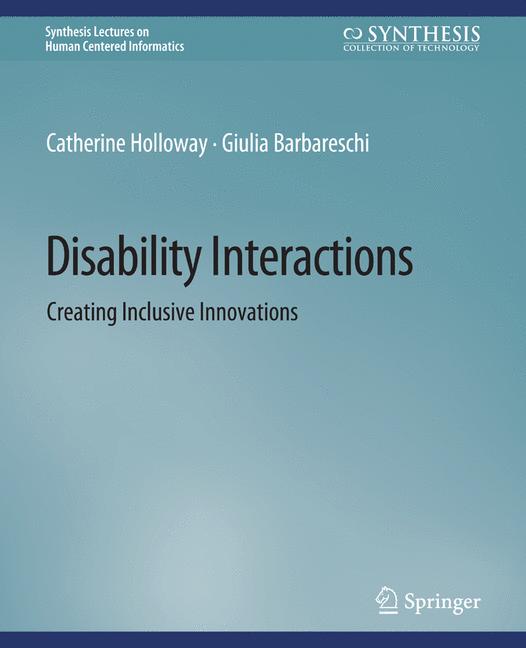
Case Study: DIX within the AT2030 program in Kenya
Case Study: DIX within the AT2030 program in Kenya. Excerpted from Disability Interactions: Creating Inclusive Innovations by Catherine Holloway and Giulia Barbareschi.
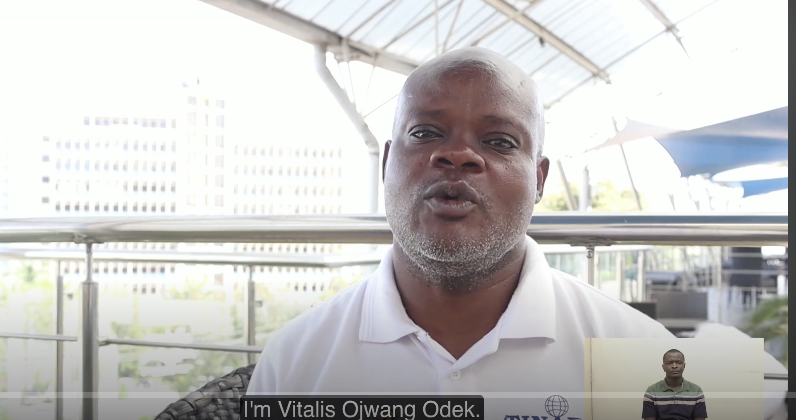
Empowering OPDs to Lead Change. Vitalis Odek's story.
In this video, hear from Vitalis ODek from Disability Agenda Kenya as he shares insights from our on-the-ground assessment. Discover how these findings are shaping targeted capacity-building interventions designed to empower OPDs with the tools, knowledge, and networks they need to drive change in their communities.
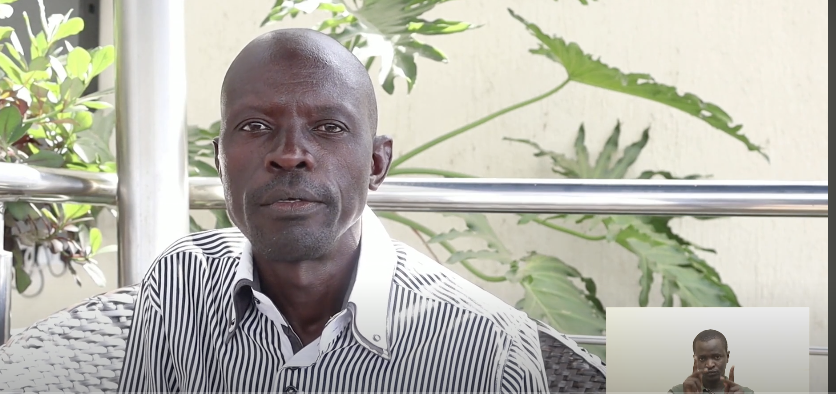
Empowering OPDs to Lead Change. Pauls' video
In this video, hear from Paul Olang Akeyo of the Kenya Disabled Information Advisory Center as he shares insights from our on-the-ground assessment. Discover how these findings are shaping targeted capacity-building interventions designed to empower OPDs with the tools, knowledge, and networks they need to drive change in their communities.